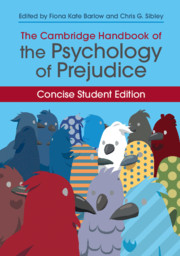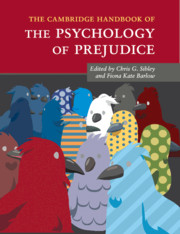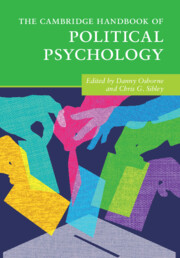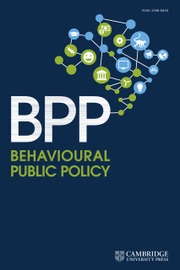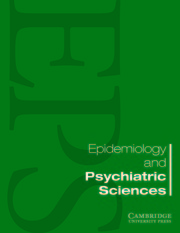The Cambridge Handbook of the Psychology of Prejudice
Concise Student Edition
£28.99
Part of Cambridge Handbooks in Psychology
- Editors:
- Fiona Kate Barlow, University of Queensland
- Chris G. Sibley, University of Auckland
- Date Published: October 2018
- availability: In stock
- format: Paperback
- isbn: 9781108444361
£
28.99
Paperback
-
The Cambridge Handbook of the Psychology of Prejudice: Concise Student Edition aims to answer the questions: why is prejudice so persistent? How does it affect people exposed to it? And what can we do about it? With cutting-edge research from top scholars in the field, the chapters present an overview of psychological models of prejudice and investigate key domains such as racism, sexism, and the criminal justice system. This student edition of the award-winning Handbook includes new pedagogical features such as learning objectives, core terms and definitions, summary points, discussion questions, recommended reading, and an instructor's test bank. It also features a new conclusion chapter that analyzes eight hard problems currently faced by researchers and activists, thus engaging students in deep, forward-thinking discussion. Developed specifically for use in Psychology of Prejudice courses at the undergraduate and graduate levels, the Concise Student Edition is an essential teaching and learning resource.
Read more- Presents the essential topics in the psychology of prejudice, from its roots to its manifestations and consequences
- New pedagogical features include learning objectives, core terms and definitions, summary points, discussion questions, recommended reading, and a test bank of multiple-choice questions
- Features a new conclusion chapter that lays out eight 'hard problems' facing prejudice researchers and activists, prompting students to think critically about prejudice and their own role in maintaining or diminishing inequality
Reviews & endorsements
'For those who want to work toward a nuanced understanding of prejudice, this Handbook is essential reading: a comprehensive, provocative, and thoughtful examination of why people are prejudiced, who is targeted, and what to do about it. This is a one-of-a-kind resource that will be indispensable to anyone engaged in the difficult business of teaching, researching, learning about, or challenging intergroup bias.' Matthew Hornsey, University of Queensland, Australia
See more reviews'This is a terrific book: comprehensive, authoritative, and current. The chapters cover traditional as well as cutting-edge topics in the psychology of prejudice in a highly accessible way. The final chapter on the 'eight hard problems' facing the scientific study of prejudice and its reduction is a gem. I highly recommend this book for both students and scholars interested in the psychology of prejudice.' Brenda Major, University of California, Santa Barbara
'This book is a scholarly delight … a superb blend of foundational theories (and theorists) that have shaped our understanding of prejudice, and contemporary approaches that take this classic work in exciting new directions. This student edition will be an excellent resource for the classroom.' William von Hippel, Head of the School of Psychology, University of Queensland, Australia
'Barlow and Sibley have connected an outstanding group of scholars in the science of prejudice to produce an exceptional student edition. Importantly, this volume offers students and researchers a ready-made curriculum that integrates theoretical perspectives on prejudice with practical exercises that deeply engage the reader in the real-world challenges of prejudice. A must for all readers intent on improving their understanding of the multiple layers of prejudice, now and into the future.' Fiona White, University of Sydney, Australia
'The book offers itself as a great package to students and teachers in providing strong conceptual understanding of the phenomenon of prejudice in terms of the different shades of meanings that are attributed to the term, the various theoretical frameworks for scientifically studying the phenomenon explaining its emergence and the factors that lead to its sustenance over a period of time from unique perspectives, and the impact it has on the variety of targets have been well addressed.' Psychological Studies
Customer reviews
Not yet reviewed
Be the first to review
Review was not posted due to profanity
×Product details
- Date Published: October 2018
- format: Paperback
- isbn: 9781108444361
- length: 458 pages
- dimensions: 247 x 175 x 23 mm
- weight: 0.93kg
- contains: 13 b/w illus. 7 tables
- availability: In stock
Table of Contents
Preface
1. What is prejudice? An introduction Chris G. Sibley and Fiona Kate Barlow
Part I. General Theoretical Perspectives:
2. Intergroup discrimination: ingroup love or outgroup hate? Marilynn B. Brewer
3. Evolutionary approaches to stereotyping and prejudice Oliver Sng, Keelah E. G. Williams and Steven L. Neuberg
4. Understanding the nature, measurement, and utility of implicit intergroup biases Kumar Yogeeswaran, Thierry Devos and Kyle Nash
5. Social dominance theory: explorations in the psychology of oppression Jim Sidanius, Sarah Cotterill, Jennifer Sheehy-Skeffington, Nour Kteily and Héctor Carvacho
6. The dual process motivational model of ideology and prejudice John Duckitt and Chris G. Sibley
7. Is prejudice heritable? Evidence from twin studies Fiona Kate Barlow, James M. Sherlock, and Brendan P. Zietsch
8. Recent developments in intergroup contact research: affective processes, group status, and contact valence Linda R. Tropp, Agostino Mazziotta and Stephen C. Wright
9. From prejudice reduction to collective action: two psychological models of social change (and how to reconcile them) John Dixon, Kevin Durrheim, Clifford Stevenson and Huseyin Cakal
10. It's all about ignorance: reflections from the blue-eyed/brown-eyed exercise Jane Elliott
Part II. Prejudice in Specific Domains:
11. Aversive racism and contemporary bias John F. Dovidio, Samuel L. Gaertner and Adam R. Pearson
12. Stereotypicality biases in the criminal justice system Danny Osborne, Paul G. Davies and Shirley Hutchinson
13. Prejudice against immigrants in multicultural societies Colleen Ward, Agnes Szabo and Jaimee Stuart
14. Ambivalent sexism in the twenty-first century Rachel A. Connor, Peter Glick and Susan T. Fiske
15. Sexual prejudice: advances in conceptual and empirical models V. Paul Poteat and Michelle Birkett
16. Where do we go from here? The eight hard problems facing the scientific study of prejudice and its reduction Fiona Kate Barlow and Chris G. Sibley
Index.
Sorry, this resource is locked
Please register or sign in to request access. If you are having problems accessing these resources please email [email protected]
Register Sign in» Proceed
You are now leaving the Cambridge University Press website. Your eBook purchase and download will be completed by our partner www.ebooks.com. Please see the permission section of the www.ebooks.com catalogue page for details of the print & copy limits on our eBooks.
Continue ×Are you sure you want to delete your account?
This cannot be undone.
Thank you for your feedback which will help us improve our service.
If you requested a response, we will make sure to get back to you shortly.
×
